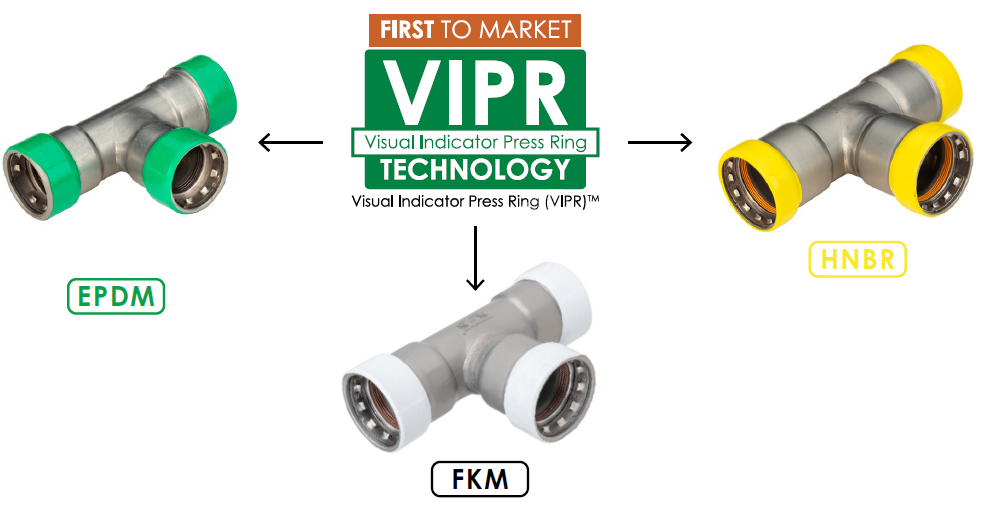For over 85 years, Merit Brass has been a trusted partner in delivering top-quality piping solutions. Our most recent addition to our product offering includes products that are compliant with ASTM A420 Carbon Steel. ASTM A420 material is crucial in the PVF industry because of its exceptional strength and versatility.

MeritPress™ in Carbon is our line of carbon steel press fittings, to our press technology product offering. Merit's CarbonPress® fittings are constructed of ASTM A420 carbon steel and have a corrosion resistant Zn-Ni (zinc nickel alloy) plating surface protection to ensure years of trouble-free service.
With over 400 SKUs, MeritPress™ in Carbon fittings are available in sizes 1/2" - 4" and in three sealing elements - EPDM (Ethylene Propylene Diene Monomer) for water applications, HNBR (Hydrogenated Nitrile Butadiene Rubber) for gas applications, and FKM (Fluorelastomer) for industrial applications (available upon request).
ASTM A420 is the specification for wrought carbon steel and alloy steel pipe fittings of seamless and welded construction. ASTM A420 carbon steel fittings are engineered for use in pressure piping and pressure vessel services at low temperatures. This ensures reliability and exceptional performance under the most challenging conditions.
ASTM A420 carbon steel fittings are manufactured using steel that has been completely deoxidized, also known as killed steel. This consists of forgings, bars, plates, sheets, and seamless or fusion-welded products. These materials are produced through recognized melting practices such as open-hearth, basic-oxygen, or electric-furnace processes. These practices ensure the fittings meet the stringent impact requirements of ASTM A420.
The manufacturing process uses a combination of forging, or forming operations, such as:
The heat treatment process for ASTM A420 carbon steel fittings is designed to enhance their mechanical properties. This ensures optimal performance in low-temperature environments. All welding operations must be completed before the austenitizing heat treatment.
To ensure that the fittings achieve the desired physical properties and are suitable for a wide range of applications, they are subjected to one of the following heat treatment processes:
A post-weld heat treatment may be necessary if specified. Additionally, all fittings must cool below their lower critical temperature before any heat treatment can begin. To meet industry standards and ensure reliable performance, these methods offer versatility in creating high-quality fittings that deliver exceptional results.
ASTM A420 carbon steel fittings must conform to stringent mechanical property requirements such as:
These properties ensure the material’s strength, durability, and suitability for low-temperature applications. All fusion-welded joints undergo radiographic examination, ensuring integrity, reliability, and that there are no hidden defects. Although hydrostatic testing is not required, our supplier does a leak check on all fittings as a part of their manufacturing process. Our commitment to quality ensures that every product meets or exceeds industry standards.
Learn More About MeritPress™ in Carbon
By choosing MeritPress™ in Carbon fittings for your next project, you benefit from:
At Merit Brass, we provide our customers with the highest quality ASTM A420 carbon steel fittings. Our quality assurance processes guarantee that our products meet the demanding needs of the pipe, valves, and fittings industry. Explore our range today and discover why Merit Brass is the go-to source for all your PVF needs.

Strength

Durability

Versatility
FAQ
LEARN MORE